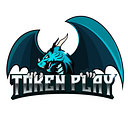Blockchain’s potential to help change the future of Online Gaming.
Blockchain’s application in gaming is in many ways a no-brainer because gamers are already accustomed to tokenization. Some of the earliest games featured applications of virtual currency. Games evolved and fused with the internet: Now, in-game gold and items can be purchased with real-life (fiat) currency. Transactions often occur outside the game itself and to the chagrin of its creators. Blockchain could establish norms and fairness around in-game currency and asset trading and tie them to the real world in sensible ways, It enables almost instantaneous payments across the world, lifting the restrictions currently on global multiplayer games, Blockchain technology such as stablecoins can essentially mirror any asset and are not subject to trade embargoes or other constraints, As it makes transactions more transparent and efficient for players, blockchain can revolutionize the gaming world by creating opportunities for both players and developers that enable a new entertainment market.
Blockchain for gaming has long been thought of as the perfect combination. After all, blockchain solves many of the legacy problems of the gaming industry. Technology like non-fungible tokens allows users to own their in-game assets, preventing the challenges of account theft. They could even port them between different games, opening up new avenues of value for the sector. Decentralization could help smaller developers wrest control from the small handful of big gaming studios that dominate the space, Blockchain-enabled developments can transfer the ownership to the players. Smart contracts, which are lines of code stored on blockchain that can automatically execute when the predetermined conditions are met, allow assets to be automatically transferred to the player. The immutability of blockchain data means that with smart contracts, developers cannot take these assets back.
Blockchain offers a number of other solutions to the gaming industry:
• Protecting players from undesirable actions on the part of creators; players can take the wheel, extending game longevity and encouraging user content. (Virtual reality game Decentraland is a promising example.) Restoring trust between game developers and distributors by recording sales on a blockchain.
• Granting immutable ownership of in-game items, solving item theft due to hacking and the sale of fake in-game assets. Tying assets to players instead of games, thereby protecting time/money investments players have made, irrespective of developer decisions.
• Creating a decentralized distribution network for games.
• Creating more realistic economic systems within games.
• Encouraging game development competition outside of the monopolistic console and game-publishing industries.
• Fixing the high-cost, low-revenue problems of cloud gaming initiatives (like Sony’s PS Now) by distributing the server over a blockchain network.
• Incentivizing players by offering dividends and granting them a vote in development processes.
• Shifting the definition of a successful game away from revenue and toward in-game currency value, thereby refocusing game development efforts to benefit players.
Blockchain gaming promises many benefits for the gaming industry, but most of all it benefits the players themselves: True ownership, decentralized games, provably fair gameplay, acquiring crypto through gameplay (play-to-earn), global leaderboards, censorship resistance, and no infrastructure to manage for the developers, are just a few of the touted advantages, Blockchain’s use cases extend far beyond the finance industry, As more people become familiar with blockchain, they are embracing the new technology and leveraging its benefits, In the gaming industry, the decentralized, steady and secure properties of blockchain can make it a popular tool as games — and their growing assets — become more complex, As developers build new games or in-game advancements, blockchain is set to improve the user experience through ownership, globalization and more. Experts say gaming will be the first real use case for blockchain, revamping the industry and making games more immersive than ever. How gaming navigates the remaining hurdles will become a case study for other industries considering mass blockchain adoption.
In the case of the gaming industry, blockchain could become the norm for player experience, the transactions of digital items, and the back-end infrastructure of games themselves. How gaming receives blockchain, why, and when, is a signal that other sectors will want to follow with rapt attention.
Therefore, application-specific blockchains are what’s necessary to create a successful marriage of blockchain and gaming. However, to take it a step further, we need to ensure that individual games can continue to have different economic incentives. Therefore, basing a single game on a single blockchain is the only way to make sure that we can address the gap, In this way, blockchain technology can become the basis of massively multiplayer games powered by community effort. These games can be infinitely modifiable, owned by the community, and run on decentralized economies that reward content creators. However, this doesn’t necessarily mean that each game needs to have its own platform. Using a blockchain core written in a generic coding language, developers can create complex blockchain applications powered by the Unity cross-platform gaming engine. The core can also have built-in features particular to game development that are typically missing in traditional blockchains. For instance, many games rely on random number generators, which are simply incompatible with the deterministic nature of blockchains.
As the gaming industry pivots its focus to in-game assets, blockchain could potentially solve a number of related problems: eliminating fraudulent items, creating scarcity, and incentivizing more purchases by making items transferable across games (more on that below). According to a survey by Worldwide Asset eXchange (WAX), a blockchain platform focused on virtual items, 62% of gamers would be more likely to invest in digital assets if they were transferable between games; 84% of developers would create in-game items for the same reasons, blockchain or cryptocurrency — application at the level of Fortnite might be enough to tip gaming toward mass blockchain adoption.
